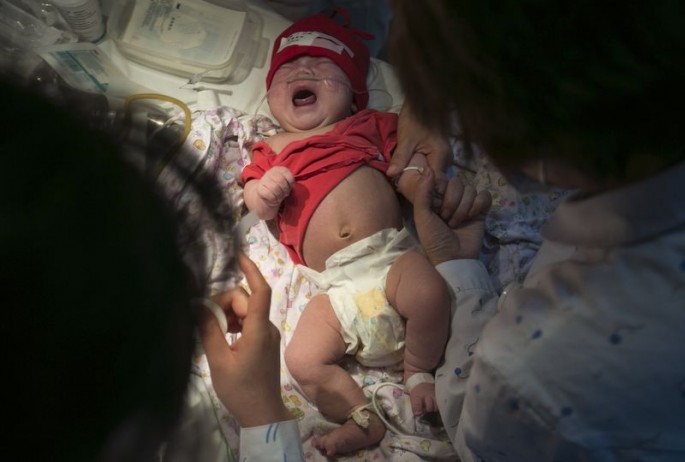Seventy-eight Chinese police officers rescued 15 infants from a child-trafficking gang, a move that has drawn attention to poverty and insufficient legal awareness in China’s poorest areas.
The infants, with the youngest being four days only, are now under temporary placement of welfare institutions, according to China Daily. Most come from the Liangshan Yi Autonomous Prefecture in Sichuan Province, Southwest China.
Blood samples for the 15 infants have been taken for purposes of parental identification through the national DNA database. Chen Shiqu, the director of the anti-human-trafficking office of the Ministry of Public Security, said that parents voluntarily sold most of the infants.
Chen said, "Poverty has always been a strong motivation for parents to sell their babies."
According to China.org, 2013 statistics revealed that Liangshan had 13.5 percent of the population (approximately 600,000 people) living below the poverty line, defined as annual per capita net income of 2,736 yuan ($415).
Although the exchange of children for money is illegal, couples residing in rural areas are just "too poor and too numb" to understand the law. An investigation conducted by the police revealed that parents normally get up to 20,000 yuan for a baby boy, who in turn can be sold by traffickers for 50,000 to 60,000 yuan. Baby girls go for between 20,000 and 30,000 yuan.
Police officers from Sichuan and Shandong Provinces conducted a joint operation, and discovered that a couple traveled frequently with infants from Liangshan to Linyi, Shandong Province, and came back empty-handed. The woman bought infants from parents in poor villages and recruited other women pretending to be mothers to help transport the babies by train.
In some cases, the couple arranged for pregnant women to deliver their babies at the homes of buyers. The problem is attributed to lack of awareness of the law.
According to a local civil servant, "They believed they were doing the infants a favor by sending them to grow up in a better environment."
The cases reduced in 2012 because of a combination of poverty reduction and a tough law enforcement crackdown. To get people out of poverty, the Sichuan provincial government put in place a package of policies. Furthermore, highways linking mountainous Liangshan and neighboring towns are under construction, paving the way for development.



























